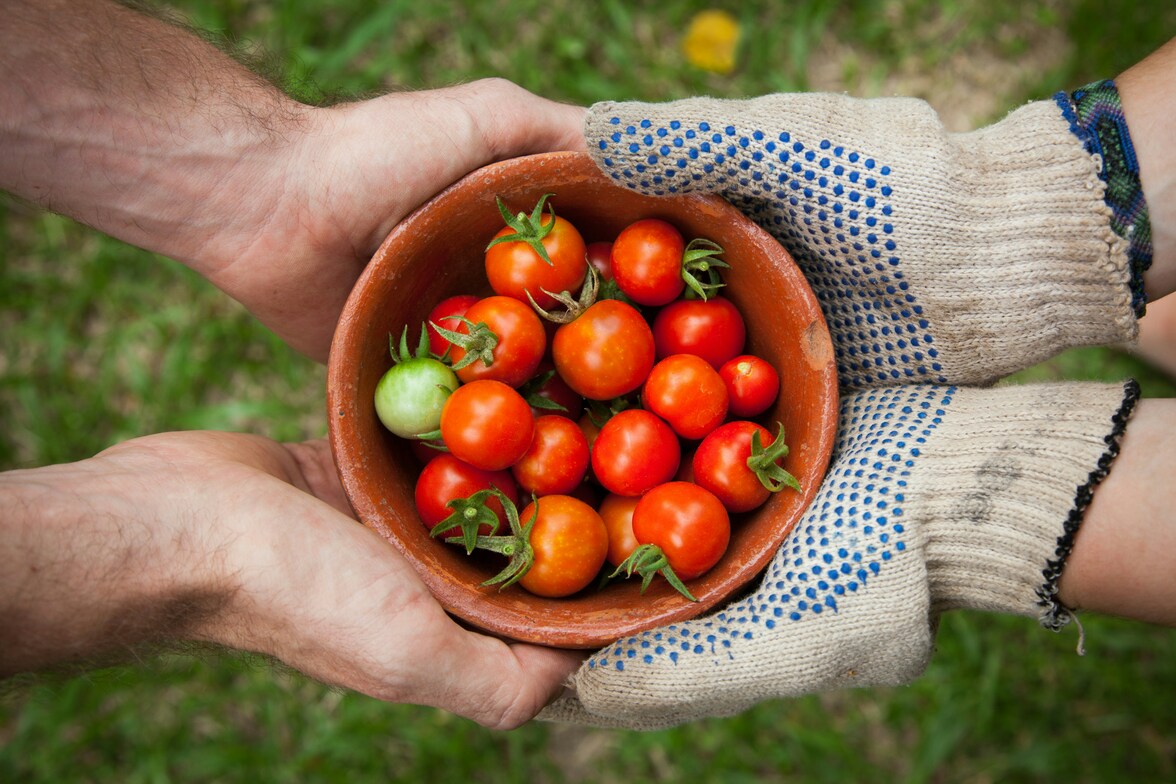
Welcome! This post is the latest in a series [which starts here] suggesting that we'll only develop food systems that are ecological, healthy, just, and morally defensible when we face the challenges of industrial animal agriculture. Inspired by the ancient Stoic principle 'The Obstacle is the Way,' the series explores reasons that so many civil-society groups, governments, and activists deliberately avoid discussing the topic of meat.
Rationale: "If we question animal agriculture, we'll alienate supporters."
So many reasons to avoid the heated topic of meat!
Why risk talking about industrial meat production and excessive meat consumption? Why take on this controversial topic when we're already doing challenging and important work?

Images: David Clode (above), Elaine Casap (top), both on Unsplash
Those are questions some climate and social-justice organizations are asking themselves. Because they know that critiquing animal agriculture, even gently suggesting that citizens could eat less meat and dairy, could tick some people off:
- Members might pull back
- Food companies could withdraw financial support
- Local government partners may retreat
- Unions, traditionally allies on the left, might be wary to support positions that put meat-sector jobs at risk
But here's the thing:
Whenever we take courageous positions, someone will be mad
But we also inspire others who've been waiting for us to speak up. And we potentially educate others who weren't aware of the importance of the issue.
If we want change, we’ll need new economic infrastructure
Labour concerns about potential job losses didn't stop educators and activists in the anti-smoking movement. So, in food production we also need to work for system change, and for fair and just transitions to well-paid jobs that support environmental and social aims. It won’t be easy but is possible, and worth fighting for.
Remember: Plant-based eating is becoming mainstream
While most people do eat meat daily, consumption of red meat has been declining in Canada for years. Steadily increasing numbers of Canadians — 37% of the population in 2023 — say they are reducing their overall meat consumption. [1] Consumers are increasingly choosing alternative proteins, mostly from plants, which is spawning a multi-billion-dollar industry that is projected to grow quickly both in high-income countries and around the world. [2] Reducing meat consumption is not the taboo topic it once was.
NOTES
[1] See page 10 of Canadian Agri‑food Policy Institute (CAPI), Deep Dive #3: Animal‑ and Plant‑Based Proteins, March 2024, 10, https://capi-icpa.ca/wp-content/uploads/2024/04/Deep-Dive-3-Animal-and-Plant-based-Proteins.pdf . Also see Dalhousie University Faculty of Management, “New Dalhousie Study Finds That 6.4 Million Canadians Limit the Amount of Meat They Eat, and Number Will Likely Grow,” news release, October 30, 2018, https://www.dal.ca/faculty/management/news-events/news/2018/10/30/release__new_dalhousie_study_finds_that_6_4_million_canadians_limit_the_amount_of_meat_they_eat__and_number_will_likely_grow.html .
[2] Resham Talwar et al., “Current and Future Market Opportunities for Alternative Proteins in Low- and Middle‑Income Countries,” Current Developments in Nutrition 8, no. Suppl. 1 (February 1, 2024), https://doi.org/10.1016/j.cdnut.2023.102035 . In its broadest sense, the term alternative proteins refers to all protein-rich foods sourced from plants, fungi, algae, insects, or [cultivated] animal cells, which have less environmental impact than large-scale animal agriculture.
1 Comment
Comments for this post are now off.

Fastidious answers in retrn of this issue with solid arguments
and describing the whole thing concerning that. http://Boyarka-inform.com/